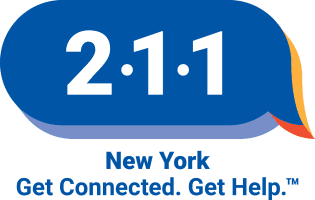VISION REHABILITATION SERVICES | GOODWILL OF THE FINGER LAKES
What's Here
LOW VISION CENTER - AVRE | ASSOCIATION FOR VISION REHABILITATION AND EMPLOYMENT
What's Here
NEW YORK STATE LIBRARY TALKING BOOK AND BRAILLE LIBRARY | NEW YORK STATE LIBRARY TALKING BOOK AND BRAILLE LIBRARY
What's Here
Olean Area Association for the Blind & Visually Impaired
What's Here
Low Vision Clinic - Orchard Park - VIA
What's Here
VISION REHABILITATION SERVICES | SYRACUSE VA MEDICAL CENTER
Provides services for Veterans who need vision rehabilitation, including assistive aids, sunglasses to help control glare, cooking and home management training, and evaluation for magnifiers, reading glasses, and telescopes.
Provides services for Veterans who need vision rehabilitation, including assistive aids, sunglasses to help control glare, cooking and home management training, and evaluation for magnifiers, reading glasses, and telescopes.
What's Here
VISION CARE - LIONS CLUB WINDSOR/HARPURSVILLE/KIRKWOOD | LIONS CLUB - WINDSOR
What's Here
SPECIAL TECHNOLOGIES AND ADAPTIVE RESOURCES (STAR) | ONONDAGA COUNTY PUBLIC LIBRARY (OCPL)
What's Here
EMERGENCY SERVICES PROGRAM | CATHOLIC CHARITIES OF THE FINGER LAKES
What's Here
SCREENING FOR VISION AND HEARING | FAMILY SERVICE ASSOCIATION OF GLENS FALLS
What's Here
VISION CARE - LIONS DEPOSIT | LIONS CLUB - DEPOSIT
What's Here
EYEGLASSES PROGRAM - NEW EYES FOR THE NEEDY | NEW EYES FOR THE NEEDY
What's Here
EMERGENCY SERVICES PROGRAM | CATHOLIC CHARITIES OF THE FINGER LAKES
What's Here
NEW YORK STATE COMMISSION FOR THE BLIND (NYSCB) | NEW YORK STATE OFFICE OF CHILDREN AND FAMILY SERVICES
Administers programs and services to enhance employability, maximize independence, and assist in the development of the capacities and strengths of people who are legally blind. Programs include:
Equipment Loan Fund, which allows individuals to borrow up to $4,000 to purchase adaptive equipment.
Children's services for children who are legally blind, including early intervention rehabilitation, working with and empowering parents, arranging services to supplement educational activities, and ensuring a smooth transition to adult services.
Vocational rehabilitation programs for adults and youth ages 14 to 21 years, which provide a number of services, including assessment, information and referral, casework services, job coaching, orientation and mobility training, independent living skills training, and assistive technology assistance.
Independent living services for individuals who are not eligible for vocational rehabilitation services and who are not receiving services through another NYSCB Program. These services are provided based on individual need and may include orientation and mobility services, rehabilitation teaching, low vision services and devices, social casework, and adaptive equipment.
Administers programs and services to enhance employability, maximize independence, and assist in the development of the capacities and strengths of people who are legally blind. Programs include:
Equipment Loan Fund, which allows individuals to borrow up to $4,000 to purchase adaptive equipment.
Children's services for children who are legally blind, including early intervention rehabilitation, working with and empowering parents, arranging services to supplement educational activities, and ensuring a smooth transition to adult services.
Vocational rehabilitation programs for adults and youth ages 14 to 21 years, which provide a number of services, including assessment, information and referral, casework services, job coaching, orientation and mobility training, independent living skills training, and assistive technology assistance.
Independent living services for individuals who are not eligible for vocational rehabilitation services and who are not receiving services through another NYSCB Program. These services are provided based on individual need and may include orientation and mobility services, rehabilitation teaching, low vision services and devices, social casework, and adaptive equipment.
What's Here
LIONS CLUB | IRONDEQUOIT LIONS CLUB
What's Here
CHILDREN AND YOUTH SERVICES - AVRE | ASSOCIATION FOR VISION REHABILITATION AND EMPLOYMENT
What's Here
VISION PROGRAM - LIONS BINGHAMTON | LIONS CLUB - BINGHAMTON
What's Here
ASSOCIATION FOR VISION REHABILITATION AND EMPLOYMENT, INC. | ASSOCIATION FOR VISION REHABILITATION AND EMPLOYMENT, INC
What's Here
EYEGLASSES E-VOUCHER PROGRAM | NEW EYES
What's Here
Core Vision Services | Association for Vision Rehabilitation and Employment (AVRE)
What's Here
Health Services | A.P. Darling Low Vision Center
What's Here
Health Services | A.P. Darling Low Vision Center
What's Here
VISION IMPAIRMENT CENTERS TO OPTIMIZE REMAINING SIGHT PROGRAM | VISION IMPAIRMENT CENTERS TO OPTIMIZE REMAINING SIGHT PROGRAM
What's Here
VISION SERVICES | CENTER FOR COMMUNITY ADJUSTMENT
What's Here
Warsaw Public Library (Service Group)
What's Here
